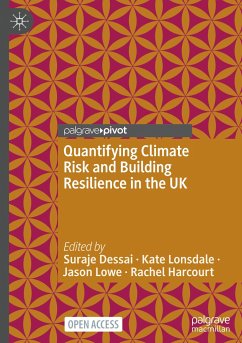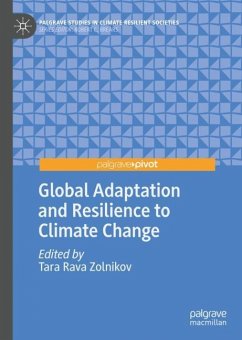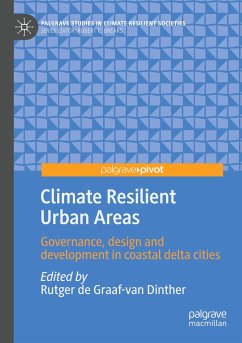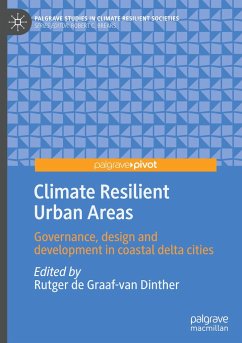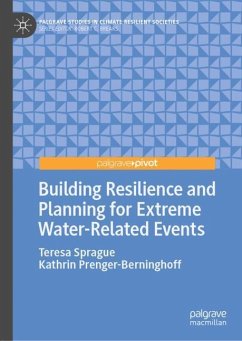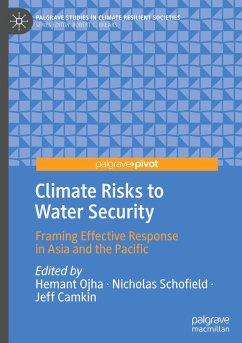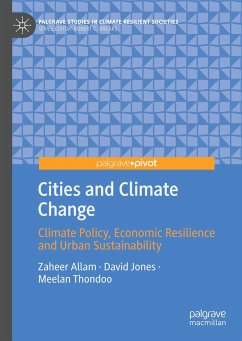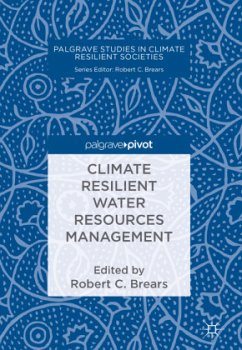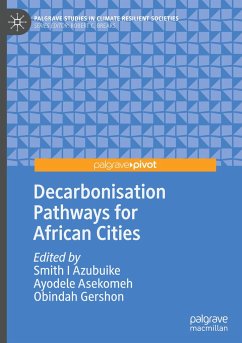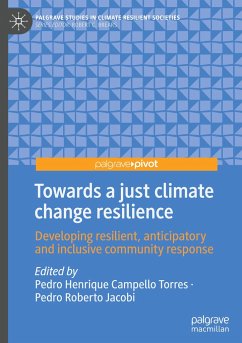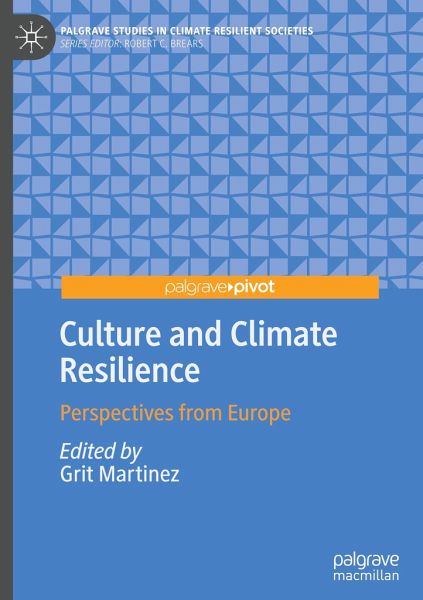
Culture and Climate Resilience
Perspectives from Europe
Herausgegeben: Martinez, Grit

PAYBACK Punkte
23 °P sammeln!
This book addresses the importance of cultural values, local knowledge and identity in building community resilience in place based contexts. There is a growing impetus among policy makers and practitioners to support and empower capacities of communities under changing climatic conditions. Despite this there is little systematic understanding of why approaches work at local levels or not and what makes some communities resilient and others less so. Europe is typically thought to be well equipped for coping with the effects of a changing climate - because of its moderate climate, its manifold ...
This book addresses the importance of cultural values, local knowledge and identity in building community resilience in place based contexts. There is a growing impetus among policy makers and practitioners to support and empower capacities of communities under changing climatic conditions. Despite this there is little systematic understanding of why approaches work at local levels or not and what makes some communities resilient and others less so.
Europe is typically thought to be well equipped for coping with the effects of a changing climate - because of its moderate climate, its manifold urban-industrialized regions, it's typically highly skilled population, its successes in science and technology and its advanced climate change policies. However, there is a growing need to understand the effects culture has on communal resiliency and for decision makers and planners to pay attention to historical and cultural characteristics and the complexityof contextualized local conditions to enable successful and durable implementation of climate change policies, programs and measures. This book will be a valuable resource for researchers, students, practitioners and policy makers interested in facilitating sustainable, resilient communities.
Europe is typically thought to be well equipped for coping with the effects of a changing climate - because of its moderate climate, its manifold urban-industrialized regions, it's typically highly skilled population, its successes in science and technology and its advanced climate change policies. However, there is a growing need to understand the effects culture has on communal resiliency and for decision makers and planners to pay attention to historical and cultural characteristics and the complexityof contextualized local conditions to enable successful and durable implementation of climate change policies, programs and measures. This book will be a valuable resource for researchers, students, practitioners and policy makers interested in facilitating sustainable, resilient communities.



